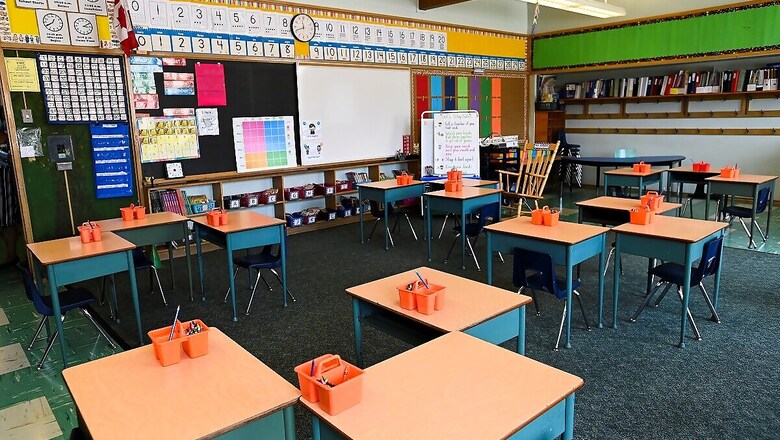
views
The celebrated item number ‘Munni badnam hui’ was never expected to raise a debate about education. But after its inclusion in the UK schools curriculum, it has – and not just by way of a quirky aside. In its very lightness, the surprising study material makes a case for a far broader curriculum school children should be exposed to than they are currently.
“It’s a fascinating piece,” British composer Julian Lloyd Webber tells CNN News18. “It’s all I can say, and it’s the sort of piece that would make children say to themselves I want to hear more. And that’s exactly what we are trying to do, to stimulate their interest.”
Webber was on the committee of artists and officials who devised the new music curriculum. That includes Munni Badnam Hui in addition to ‘Jai Ho’ from A. R. Rahman and on quite the other side in Indian music, ‘Saheli re’ by Kishori Amonkar, the Desh raga, and Ravi Shankar. We wanted to do that, we wanted to show not just one or two pieces but a much wider range,” says Webber. “So that people realise that the Indian music tradition is extremely rich,” he added.
“We want our children to experience the widest possible range of music and in this model music curriculum there really is quite a lot of Indian music,” says Webber. I think it’s important that children come out of school with knowledge of all different kinds of things, he emphasised. `
That’s just the Indian colours of the range. The curriculum counts in far more from around the world. So that means Beethoven, Mozart, The Beatles, Brazilian music…you name it. And lots more you can’t. So what will kids get to hear, and how? A sampling of the lot? Or pick and choose?
“It’s definitely pick and choose,” says Webber. “It’s basically a recommendation to teachers in schools of what you could choose to play. For some schools some music might be more suitable than others. We wanted to get feedback on this, we want the teachers to come back once this has started with their own suggestions, we even wanted children to get involved and say things we could play. So it really is an experiment in a way of introducing children to as wide a range of music as possible.”
The curriculum is a recommendation, not a prescription. “I’m sure teachers will approach things in different ways,” says Webber. And also we have got to remember that some schools already have a very well established and successful music programme so they will be more ahead with this kind of work than other schools which may almost just be starting. It’s really a guide to what teachers could play to the children, he added.
Classrooms are being invited to be creative around the curriculum. “Each lesson will be completely different,” says Webber. “So you might have a lesson on pop music, you might have a lesson solely on Indian music…it will be a lesson children really will look forward to having in the week.”
Serious Learning
That sounds like a lot of fun, but there will be some serious learning here. “This curriculum runs to a hundred pages,” says Webber. “It isn’t just about listening, it’s also about basic notation. We think it’s important to run the alphabet before you learn the language. So just some basic language about how things work. We think it will be very useful for children who might take this a little bit further in the future.”
To take things further in the future, children of course need to know what they can take into the future, what they can take from. That may not be what mum and dad think they should. Which makes such a curriculum a pointer to extend the exposure of children to learning beyond the usual confines.
“Children need to learn a wide range of subjects, not just a very narrow range of subjects that adults think they should learn, like maths, languages, English, science,” says Webber. “All that’s great. But there are other things in life as well. Not everyone is good at maths. Someone may be dreadful at maths, but brilliant at playing Indian music. So why not give children a wide range of possibilities, so they can find out for themselves what they’re interested in.”
And there isn’t a field of learning where diversity is quite as attractive, and as accessible as music. “The idea of coming out of school with no knowledge of wide areas of music is wrong,” says Webber.
Read all the Latest News, Breaking News and Coronavirus News here. Follow us on Facebook, Twitter and Telegram.
















Comments
0 comment